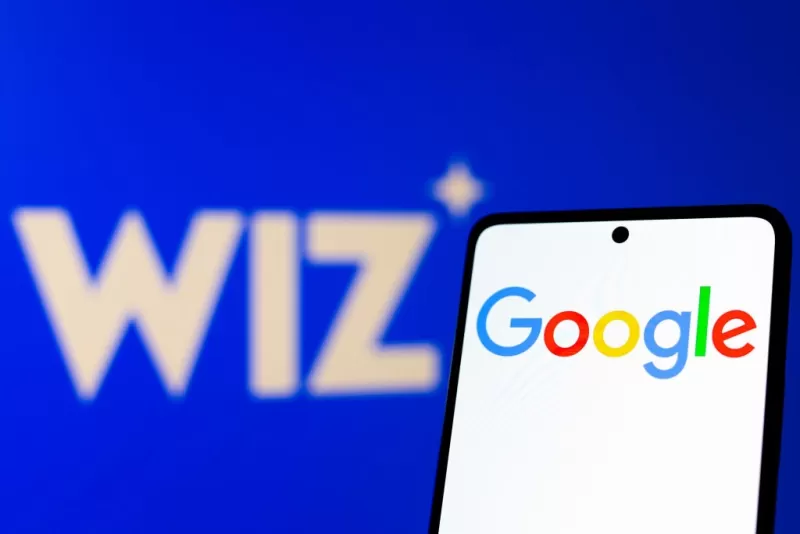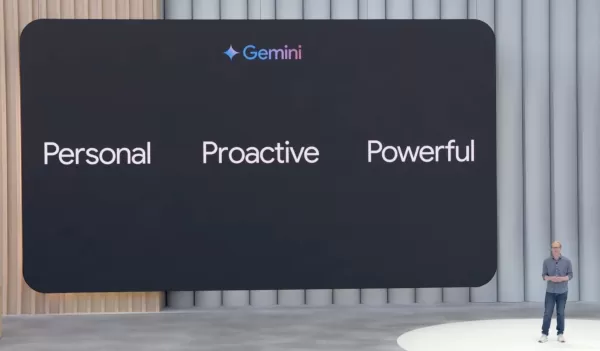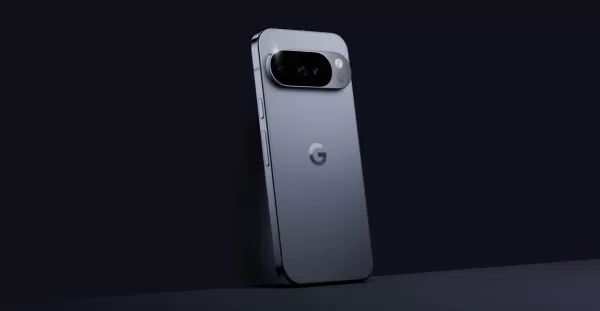Google's $32B Wiz Acquisition: A Multicloud Strategy Unveiled

Google's acquisition of the security startup Wiz for a staggering $32 billion has made headlines, but there's a significant caveat to consider. Google plans to market Wiz as a "multicloud" solution, indicating that Wiz won't be exclusive to Google's ecosystem.
The truth is, Google didn't have much of a choice in this matter. A deeper dive into the motivations behind this move reveals the gaps Google hopes to bridge with Wiz.
Customer Retention
Wiz comes with a hefty customer base, boasting an annual revenue run rate of $700 million as of today. Before the acquisition news hit on Tuesday, it was poised to hit the $1 billion mark.
The key phrase here is "before the news broke."
Both Google and Wiz are banking on this acquisition to open up new avenues for customers and revenue. However, their top priority will be to keep their current customers from looking elsewhere for security solutions.
Many of these customers operate in a hybrid cloud environment and might not even use Google Cloud. A major reason they opted for Wiz initially was its support for multiple cloud platforms.
If Google were to limit this capability, it could drive these customers away.
That's why Wiz CEO Assaf Rappaport and other top executives—Wiz also secured an additional $1 billion to keep its talent during the transition to Google—were busy calling customers before and after the deal was announced, assuring them that it's business as usual.
Antitrust Regulation
When rumors surfaced last summer about Alphabet/Google's interest in acquiring Wiz, there was immediate speculation about the regulatory hurdles such a massive deal would face. Google has been under the microscope for antitrust issues for years, especially in areas like search, mobile operating systems, and advertising.
The regulatory landscape has shifted somewhat. The U.S. under President Trump hasn't seen a major antitrust case yet, and opinions are divided on how his administration will handle Big Tech. Some think Big Tech will still face obstacles, while others, considering trends like Microsoft's approved acquisition of Activision, believe the window for big deals is open again.
My colleague Natasha remarked, "That Google feels able to contemplate big M&A again seems big in itself. Do they think they have the Trump administration on their side?"
In smaller but influential markets like the U.K., regulators have recently adopted a more welcoming stance toward Big Tech as part of a broader effort to signal that "the U.K. is open for business." This could be an opportunity for so-called hyperscalers to wake up from their M&A slumber.
Even if the regulatory environment remains challenging for Big Tech M&A, Google's "multicloud" positioning could be beneficial.
Cloud services and cybersecurity are not areas where Google currently dominates, so this deal might not trigger antitrust concerns on its own.
However, if regulators are examining Google's overall market dominance, highlighting Wiz's ability to operate across different cloud platforms could bolster Google's case that it supports competition.
Google Cloud Struggles to Keep Up with AWS and Azure
The final reason Google had to adopt the multicloud model is straightforward: many customers simply don't use, and won't use, Google Cloud. According to Statista data from Q4 2024, AWS holds a 30% share of the global cloud market, with Azure at 21%. Google Cloud lags far behind at 12%.
Why is Google so far behind? Some argue it's because AWS got a head start. Others point to Microsoft's dominance in the enterprise sector and its robust ecosystem, including its partnership with OpenAI, as giving it an advantage. Google lacks these strengths.
A few years ago, there was speculation that Google might close the gap, given its cloud offerings were on par with AWS and Azure.
"Google Cloud has always been a bit of a mystery when it comes to their position in third place in cloud infrastructure market share," former TC writer Ron Miller told me today. "They run the largest cloud applications in the world, yet have had trouble translating that into products for enterprise customers."
He believes that changed under current Google Cloud CEO Thomas Kurian. "He has much more credibility with enterprise customers," says Miller. "They have been growing fast the last couple of years and have a pretty substantial business but still way behind Amazon and Microsoft in terms of revenue."
During an investor call on Tuesday, Kurian emphasized that Google pursued Wiz because of its multicloud capabilities.
"Multicloud is something our customers want," he said. "Our commitment to multicloud means that new IT projects an organization does with Google Cloud can work with their existing IT investments, and allows them to choose different vendors for products in the future. Customers don't want to be locked into one vendor."
But Kurian also believes that AI could be a game-changer.
AI architectures typically involve large enterprises pooling data from multiple sources, rather than relying on a single cloud provider, Kurian noted. This makes multicloud protection more crucial than securing a centralized data cache.
Multicloud is the pitch to "help customers identify, protect, and defend against cyber threats across all major clouds and even in on-premise systems," Kurian said.
Now, it remains to be seen whether regulators and end users will buy into this strategy.
Related article
 Google Relaunches AI-Powered 'Ask Photos' with Improved Speed Features
Following a temporary halt in testing, Google is relaunching its AI-driven "Ask Photos" search functionality in Google Photos with significant enhancements. Powered by Google's Gemini AI technology, this innovative feature helps users locate specific
Google Relaunches AI-Powered 'Ask Photos' with Improved Speed Features
Following a temporary halt in testing, Google is relaunching its AI-driven "Ask Photos" search functionality in Google Photos with significant enhancements. Powered by Google's Gemini AI technology, this innovative feature helps users locate specific
 Google AI Ultra Unveiled: Premium Subscription Priced at $249.99 Monthly
Google Unveils Premium AI Ultra SubscriptionAt Google I/O 2025, the tech giant announced its new comprehensive AI subscription service - Google AI Ultra. Priced at $249.99 monthly, this premium offering provides exclusive access to Google's most adva
Google AI Ultra Unveiled: Premium Subscription Priced at $249.99 Monthly
Google Unveils Premium AI Ultra SubscriptionAt Google I/O 2025, the tech giant announced its new comprehensive AI subscription service - Google AI Ultra. Priced at $249.99 monthly, this premium offering provides exclusive access to Google's most adva
 Google Curbs Pixel 10 Leaks by Officially Revealing the Smartphone Early
Google is teasing fans with an early glimpse of its upcoming Pixel 10 smartphone lineup, showcasing the official design just weeks before the scheduled August 20th launch event.A promotional video on Google's website reveals a sleek grayish-blue devi
Comments (28)
0/200
Google Curbs Pixel 10 Leaks by Officially Revealing the Smartphone Early
Google is teasing fans with an early glimpse of its upcoming Pixel 10 smartphone lineup, showcasing the official design just weeks before the scheduled August 20th launch event.A promotional video on Google's website reveals a sleek grayish-blue devi
Comments (28)
0/200
![RalphEvans]() RalphEvans
RalphEvans
 August 24, 2025 at 5:01:17 AM EDT
August 24, 2025 at 5:01:17 AM EDT
Wow, $32B for Wiz? That's a wild bet by Google! Multicloud sounds smart, but I wonder if they’re just throwing cash to catch up in the security game. 🤔 Still, it’s cool to see big moves like this shaking up the cloud space!


 0
0
![MichaelMartinez]() MichaelMartinez
MichaelMartinez
 August 12, 2025 at 5:00:59 AM EDT
August 12, 2025 at 5:00:59 AM EDT
Wow, $32B for Wiz? Google’s playing big, but making it multicloud feels like a smart hedge. Keeps them in the game without locking users in. Curious how AWS and Azure will counter this! 😎


 0
0
![GeorgeWilliams]() GeorgeWilliams
GeorgeWilliams
 July 23, 2025 at 12:59:29 AM EDT
July 23, 2025 at 12:59:29 AM EDT
Wow, $32B for Wiz? Google’s playing chess with this multicloud move! Smart to keep it open, but I wonder if it’ll spark a bidding war with AWS or Azure. 🧐


 0
0
![PeterMartinez]() PeterMartinez
PeterMartinez
 April 14, 2025 at 6:30:26 AM EDT
April 14, 2025 at 6:30:26 AM EDT
Google's acquisition of Wiz for $32B is wild! It's cool that they're pushing for a multicloud strategy, but I'm skeptical if it'll really work out. It's like trying to mix oil and water, you know? 🤔 Still, gotta give them props for trying something new!


 0
0
![BillyGarcia]() BillyGarcia
BillyGarcia
 April 13, 2025 at 10:02:36 AM EDT
April 13, 2025 at 10:02:36 AM EDT
A aquisição da Wiz pelo Google por US$ 32 bilhões é uma loucura! É legal que eles estejam empurrando uma estratégia de multicloud, mas eu sou cético se vai realmente funcionar. É como tentar misturar óleo e água, sabe? 🤔 Ainda assim, temos que dar crédito a eles por tentar algo novo!


 0
0
![LawrenceLopez]() LawrenceLopez
LawrenceLopez
 April 13, 2025 at 3:50:50 AM EDT
April 13, 2025 at 3:50:50 AM EDT
O Google comprar a Wiz por 32 bilhões de dólares é uma loucura! Mas é legal que eles vão usar uma estratégia multicloud, não só mantendo tudo no próprio quintal. Fico pensando se estão tentando se dar bem com os outros ou apenas expandir. De qualquer forma, é uma grande mudança no mundo da segurança. Espero que dê certo!


 0
0

Google's acquisition of the security startup Wiz for a staggering $32 billion has made headlines, but there's a significant caveat to consider. Google plans to market Wiz as a "multicloud" solution, indicating that Wiz won't be exclusive to Google's ecosystem.
The truth is, Google didn't have much of a choice in this matter. A deeper dive into the motivations behind this move reveals the gaps Google hopes to bridge with Wiz.
Customer Retention
Wiz comes with a hefty customer base, boasting an annual revenue run rate of $700 million as of today. Before the acquisition news hit on Tuesday, it was poised to hit the $1 billion mark.
The key phrase here is "before the news broke."
Both Google and Wiz are banking on this acquisition to open up new avenues for customers and revenue. However, their top priority will be to keep their current customers from looking elsewhere for security solutions.
Many of these customers operate in a hybrid cloud environment and might not even use Google Cloud. A major reason they opted for Wiz initially was its support for multiple cloud platforms.
If Google were to limit this capability, it could drive these customers away.
That's why Wiz CEO Assaf Rappaport and other top executives—Wiz also secured an additional $1 billion to keep its talent during the transition to Google—were busy calling customers before and after the deal was announced, assuring them that it's business as usual.
Antitrust Regulation
When rumors surfaced last summer about Alphabet/Google's interest in acquiring Wiz, there was immediate speculation about the regulatory hurdles such a massive deal would face. Google has been under the microscope for antitrust issues for years, especially in areas like search, mobile operating systems, and advertising.
The regulatory landscape has shifted somewhat. The U.S. under President Trump hasn't seen a major antitrust case yet, and opinions are divided on how his administration will handle Big Tech. Some think Big Tech will still face obstacles, while others, considering trends like Microsoft's approved acquisition of Activision, believe the window for big deals is open again.
My colleague Natasha remarked, "That Google feels able to contemplate big M&A again seems big in itself. Do they think they have the Trump administration on their side?"
In smaller but influential markets like the U.K., regulators have recently adopted a more welcoming stance toward Big Tech as part of a broader effort to signal that "the U.K. is open for business." This could be an opportunity for so-called hyperscalers to wake up from their M&A slumber.
Even if the regulatory environment remains challenging for Big Tech M&A, Google's "multicloud" positioning could be beneficial.
Cloud services and cybersecurity are not areas where Google currently dominates, so this deal might not trigger antitrust concerns on its own.
However, if regulators are examining Google's overall market dominance, highlighting Wiz's ability to operate across different cloud platforms could bolster Google's case that it supports competition.
Google Cloud Struggles to Keep Up with AWS and Azure
The final reason Google had to adopt the multicloud model is straightforward: many customers simply don't use, and won't use, Google Cloud. According to Statista data from Q4 2024, AWS holds a 30% share of the global cloud market, with Azure at 21%. Google Cloud lags far behind at 12%.
Why is Google so far behind? Some argue it's because AWS got a head start. Others point to Microsoft's dominance in the enterprise sector and its robust ecosystem, including its partnership with OpenAI, as giving it an advantage. Google lacks these strengths.
A few years ago, there was speculation that Google might close the gap, given its cloud offerings were on par with AWS and Azure.
"Google Cloud has always been a bit of a mystery when it comes to their position in third place in cloud infrastructure market share," former TC writer Ron Miller told me today. "They run the largest cloud applications in the world, yet have had trouble translating that into products for enterprise customers."
He believes that changed under current Google Cloud CEO Thomas Kurian. "He has much more credibility with enterprise customers," says Miller. "They have been growing fast the last couple of years and have a pretty substantial business but still way behind Amazon and Microsoft in terms of revenue."
During an investor call on Tuesday, Kurian emphasized that Google pursued Wiz because of its multicloud capabilities.
"Multicloud is something our customers want," he said. "Our commitment to multicloud means that new IT projects an organization does with Google Cloud can work with their existing IT investments, and allows them to choose different vendors for products in the future. Customers don't want to be locked into one vendor."
But Kurian also believes that AI could be a game-changer.
AI architectures typically involve large enterprises pooling data from multiple sources, rather than relying on a single cloud provider, Kurian noted. This makes multicloud protection more crucial than securing a centralized data cache.
Multicloud is the pitch to "help customers identify, protect, and defend against cyber threats across all major clouds and even in on-premise systems," Kurian said.
Now, it remains to be seen whether regulators and end users will buy into this strategy.
 Google Relaunches AI-Powered 'Ask Photos' with Improved Speed Features
Following a temporary halt in testing, Google is relaunching its AI-driven "Ask Photos" search functionality in Google Photos with significant enhancements. Powered by Google's Gemini AI technology, this innovative feature helps users locate specific
Google Relaunches AI-Powered 'Ask Photos' with Improved Speed Features
Following a temporary halt in testing, Google is relaunching its AI-driven "Ask Photos" search functionality in Google Photos with significant enhancements. Powered by Google's Gemini AI technology, this innovative feature helps users locate specific
 Google AI Ultra Unveiled: Premium Subscription Priced at $249.99 Monthly
Google Unveils Premium AI Ultra SubscriptionAt Google I/O 2025, the tech giant announced its new comprehensive AI subscription service - Google AI Ultra. Priced at $249.99 monthly, this premium offering provides exclusive access to Google's most adva
Google AI Ultra Unveiled: Premium Subscription Priced at $249.99 Monthly
Google Unveils Premium AI Ultra SubscriptionAt Google I/O 2025, the tech giant announced its new comprehensive AI subscription service - Google AI Ultra. Priced at $249.99 monthly, this premium offering provides exclusive access to Google's most adva
 Google Curbs Pixel 10 Leaks by Officially Revealing the Smartphone Early
Google is teasing fans with an early glimpse of its upcoming Pixel 10 smartphone lineup, showcasing the official design just weeks before the scheduled August 20th launch event.A promotional video on Google's website reveals a sleek grayish-blue devi
Google Curbs Pixel 10 Leaks by Officially Revealing the Smartphone Early
Google is teasing fans with an early glimpse of its upcoming Pixel 10 smartphone lineup, showcasing the official design just weeks before the scheduled August 20th launch event.A promotional video on Google's website reveals a sleek grayish-blue devi
 August 24, 2025 at 5:01:17 AM EDT
August 24, 2025 at 5:01:17 AM EDT
Wow, $32B for Wiz? That's a wild bet by Google! Multicloud sounds smart, but I wonder if they’re just throwing cash to catch up in the security game. 🤔 Still, it’s cool to see big moves like this shaking up the cloud space!


 0
0
 August 12, 2025 at 5:00:59 AM EDT
August 12, 2025 at 5:00:59 AM EDT
Wow, $32B for Wiz? Google’s playing big, but making it multicloud feels like a smart hedge. Keeps them in the game without locking users in. Curious how AWS and Azure will counter this! 😎


 0
0
 July 23, 2025 at 12:59:29 AM EDT
July 23, 2025 at 12:59:29 AM EDT
Wow, $32B for Wiz? Google’s playing chess with this multicloud move! Smart to keep it open, but I wonder if it’ll spark a bidding war with AWS or Azure. 🧐


 0
0
 April 14, 2025 at 6:30:26 AM EDT
April 14, 2025 at 6:30:26 AM EDT
Google's acquisition of Wiz for $32B is wild! It's cool that they're pushing for a multicloud strategy, but I'm skeptical if it'll really work out. It's like trying to mix oil and water, you know? 🤔 Still, gotta give them props for trying something new!


 0
0
 April 13, 2025 at 10:02:36 AM EDT
April 13, 2025 at 10:02:36 AM EDT
A aquisição da Wiz pelo Google por US$ 32 bilhões é uma loucura! É legal que eles estejam empurrando uma estratégia de multicloud, mas eu sou cético se vai realmente funcionar. É como tentar misturar óleo e água, sabe? 🤔 Ainda assim, temos que dar crédito a eles por tentar algo novo!


 0
0
 April 13, 2025 at 3:50:50 AM EDT
April 13, 2025 at 3:50:50 AM EDT
O Google comprar a Wiz por 32 bilhões de dólares é uma loucura! Mas é legal que eles vão usar uma estratégia multicloud, não só mantendo tudo no próprio quintal. Fico pensando se estão tentando se dar bem com os outros ou apenas expandir. De qualquer forma, é uma grande mudança no mundo da segurança. Espero que dê certo!


 0
0





























